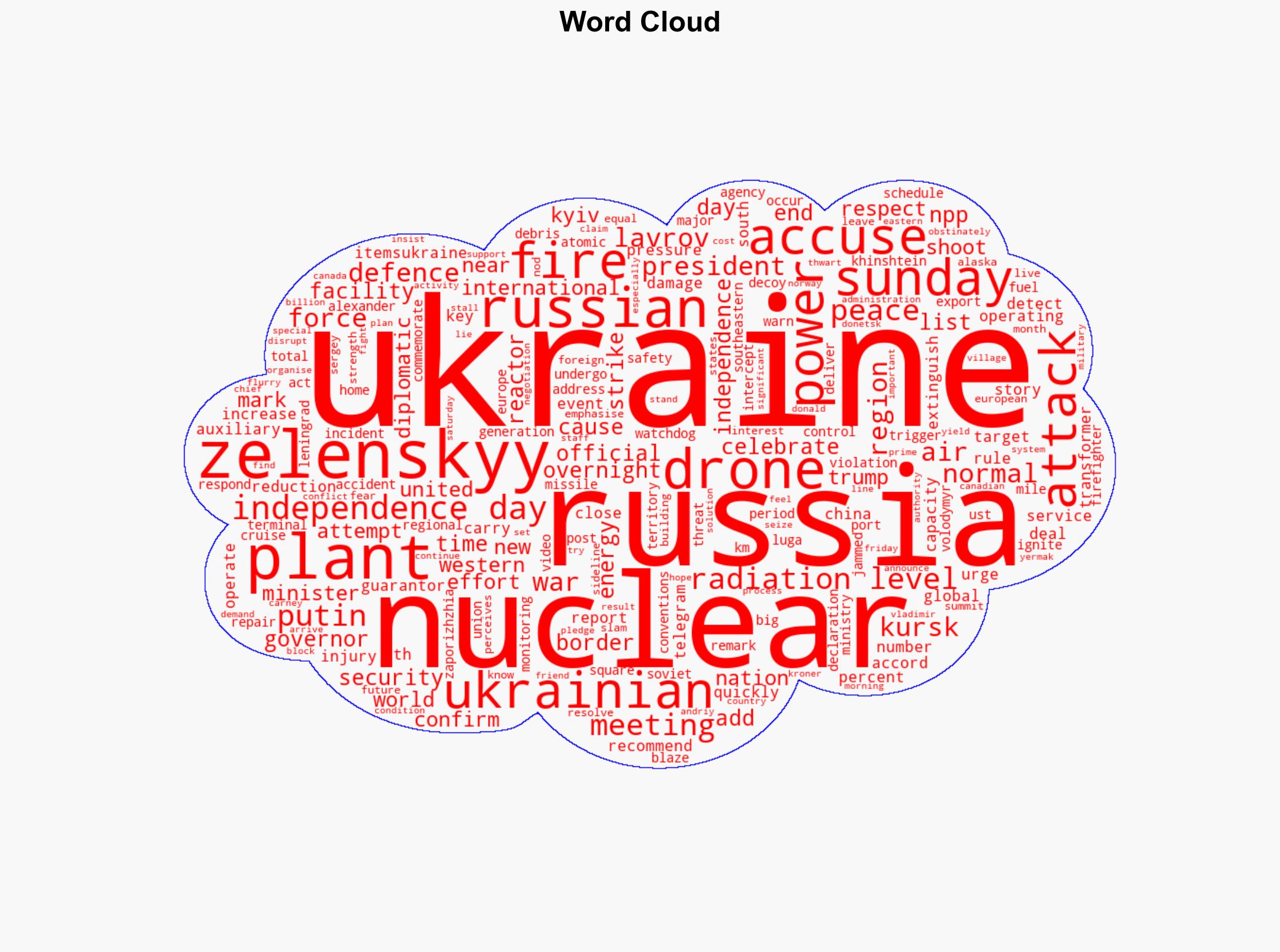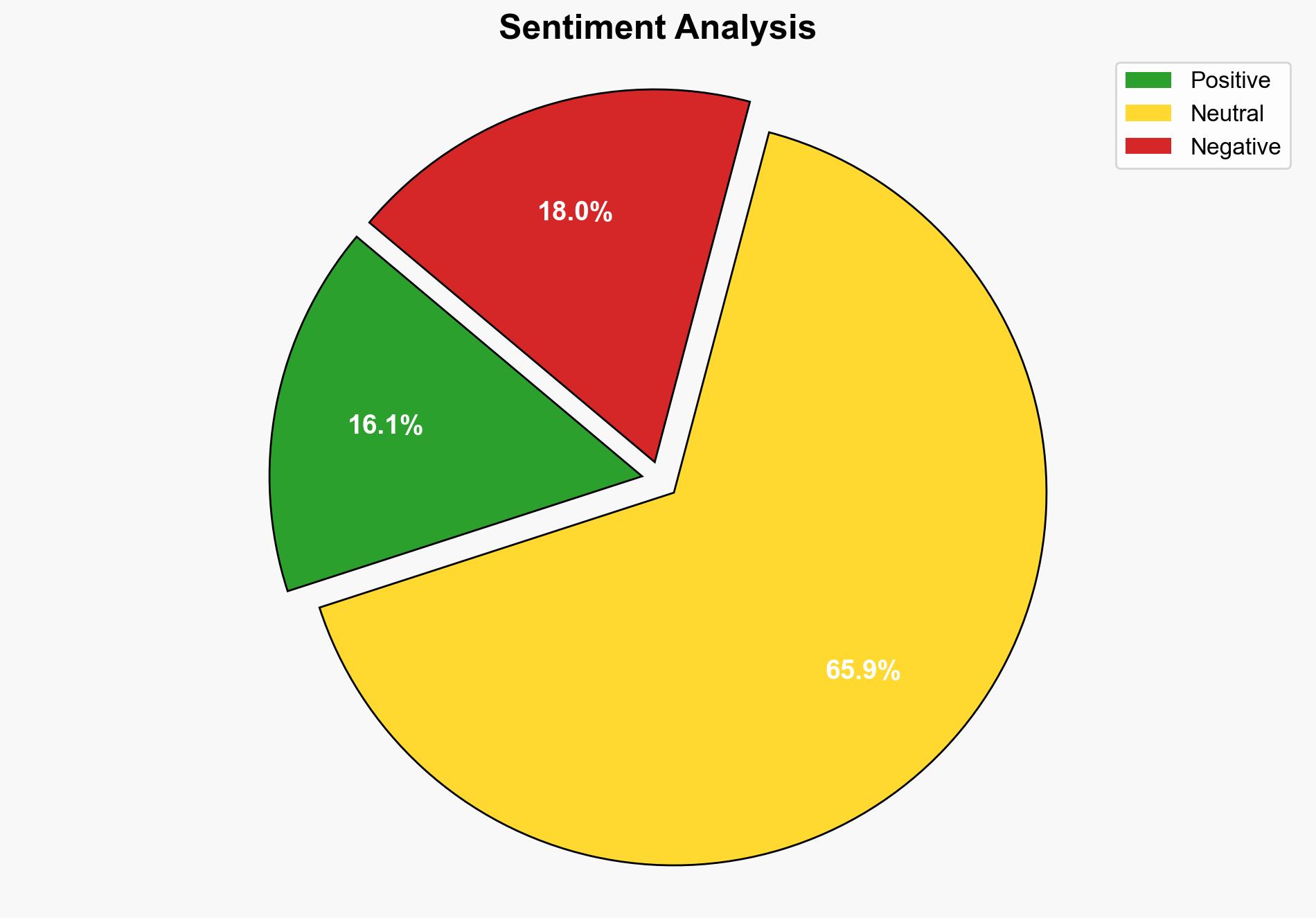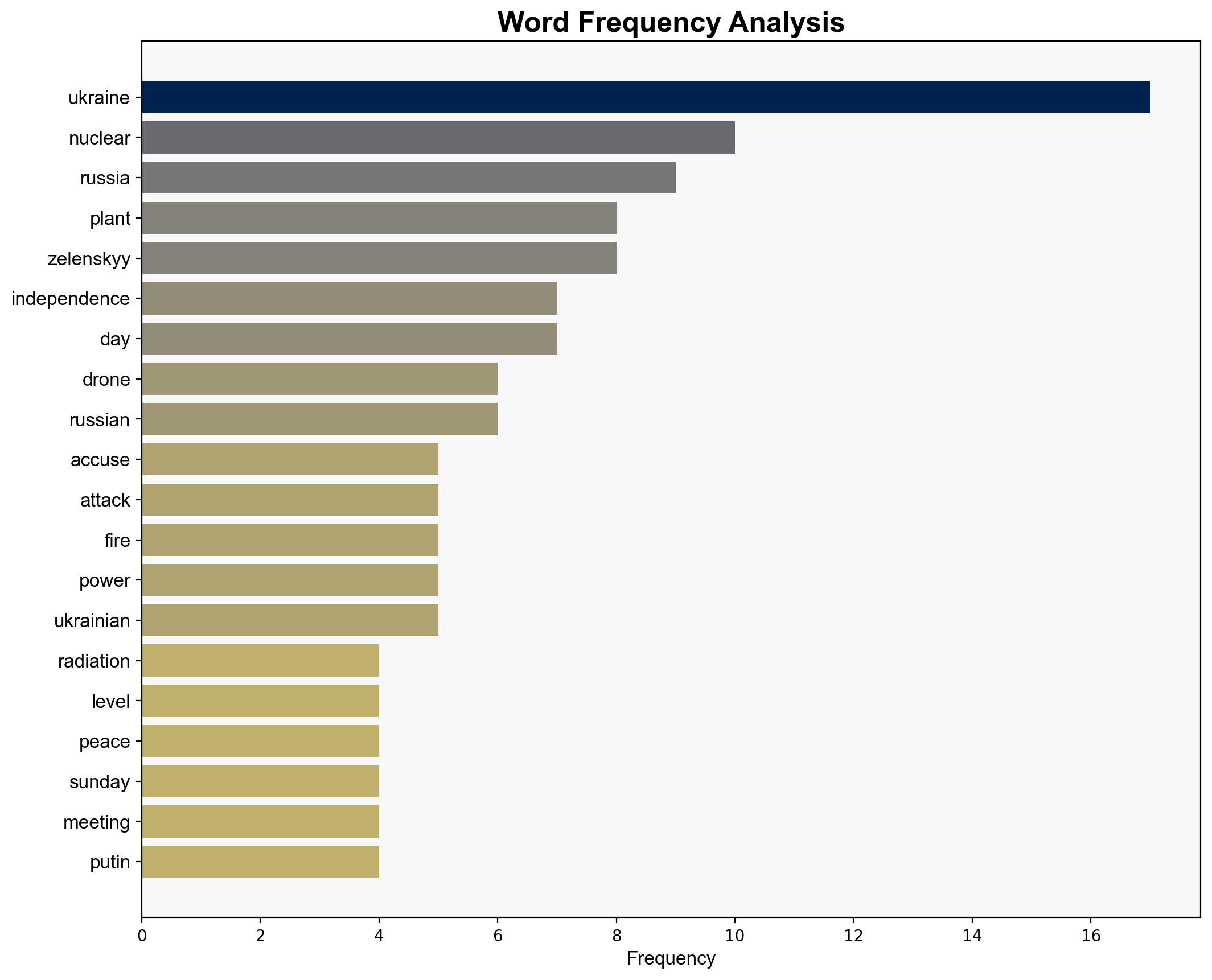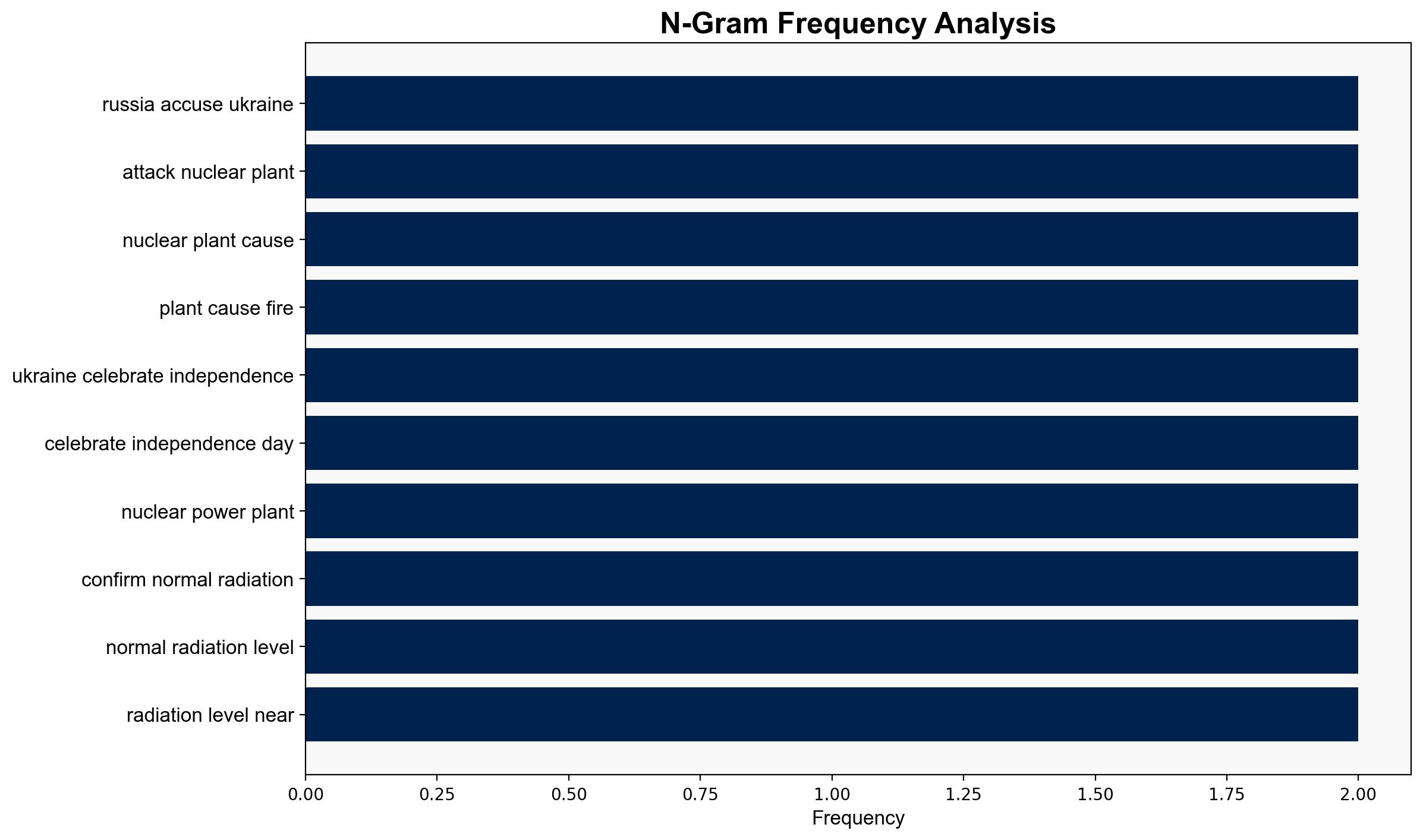Russia accuses Ukraine of attacking nuclear plant causing a fire – Al Jazeera English
Published on: 2025-08-24
Intelligence Report: Russia accuses Ukraine of attacking nuclear plant causing a fire – Al Jazeera English
1. BLUF (Bottom Line Up Front)
The most supported hypothesis is that the incident at the Kursk nuclear power plant was a result of Ukrainian drone activity, potentially aimed at disrupting Russian infrastructure on Ukraine’s Independence Day. Confidence in this hypothesis is moderate due to the lack of independent verification and potential biases in the reporting. Recommended action includes increased monitoring of regional nuclear facilities and diplomatic engagement to de-escalate tensions.
2. Competing Hypotheses
1. **Hypothesis A**: Ukraine conducted a drone attack on the Kursk nuclear power plant to coincide with its Independence Day, aiming to demonstrate resilience and disrupt Russian operations.
– **Supporting Evidence**: Russian officials claim a drone strike caused the fire; Ukraine’s Independence Day could be a motive for symbolic attacks.
– **Contradictory Evidence**: No independent verification of the attack; Ukraine denies involvement.
2. **Hypothesis B**: The fire at the Kursk nuclear plant was an accident or internal Russian issue, misattributed to Ukraine for political reasons.
– **Supporting Evidence**: The International Atomic Energy Agency confirmed normal radiation levels, suggesting limited damage; Russia has previously used misinformation as a strategic tool.
– **Contradictory Evidence**: Russian officials consistently report Ukrainian drone activity in the region.
3. Key Assumptions and Red Flags
– **Assumptions**: Hypothesis A assumes Ukraine has the capability and intent to target Russian infrastructure on a significant national day. Hypothesis B assumes Russian reports may be influenced by political motives.
– **Red Flags**: Lack of independent verification of the attack; potential bias in Russian reporting; absence of direct evidence linking Ukraine to the incident.
– **Blind Spots**: Limited access to on-ground intelligence; reliance on official statements without corroboration.
4. Implications and Strategic Risks
– **Escalation Risks**: Increased military tensions between Russia and Ukraine, potential for retaliatory actions.
– **Geopolitical Impact**: Strained relations with neighboring countries and international bodies, potential for broader regional instability.
– **Economic and Cyber Risks**: Disruption of energy supplies, potential cyber-attacks on critical infrastructure.
– **Psychological Impact**: Heightened fear of nuclear incidents, affecting public morale and international perceptions.
5. Recommendations and Outlook
- Enhance intelligence-sharing mechanisms with international allies to verify claims and monitor regional nuclear facilities.
- Engage in diplomatic dialogue to reduce tensions and prevent further escalation.
- Scenario Projections:
– **Best Case**: De-escalation through diplomatic channels, no further incidents.
– **Worst Case**: Escalation into broader military conflict, potential for nuclear safety breaches.
– **Most Likely**: Continued low-level skirmishes and accusations, with limited international intervention.
6. Key Individuals and Entities
– Volodymyr Zelenskyy
– Sergey Lavrov
– Alexander Khinshtein
– International Atomic Energy Agency
7. Thematic Tags
national security threats, cybersecurity, counter-terrorism, regional focus





